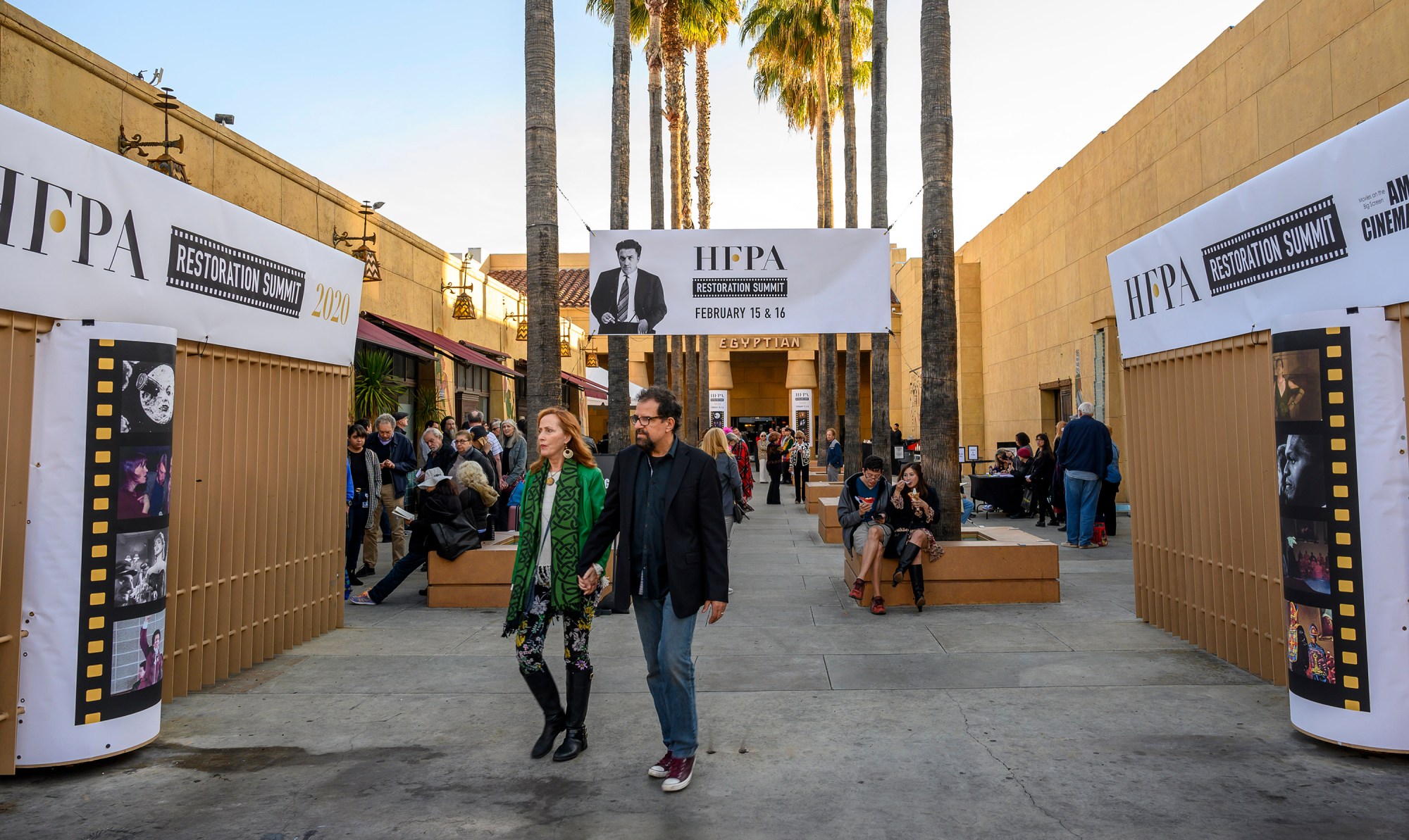
- Film
Restoration Summit Culminates with Fellini Tribute
Federico Fellini’s ex novo. The never-before-seen clips, which the Lumière brothers filmed for the 1900 Universal exhibition on experimental 75mm stock, literally had the audience gasping.
Czar of Noir Eddie Muller joined the fun with a special presentation of the new 4K print of El Vampiro Negro. A classic of Argentine noir, The Black Vampire is a remake of Fritz Lang’s M transposed to the shadowy streets and alleys (and sewers) of Buenos Aires. It is the last of a series of Argentine film noirs restored by Muller’s Film Noir Foundation with HFPA support.
FTA in a version beautifully restored by IndieCollect, the organization founded by Sandra Schulberg and devoted to the preservation ofnormal’>FTA which was produced by Jane Fonda in 1972 follows a tour of US military installations by a company of performers headed by Fonda and Donald Sutherland whose blend of cabaret and agit-prop was designed as a sort of antidote to the patriotic, official fare usually offered by USO performers like Bob Hope. Coming at the height of the anti-war movement, the film features interviews and discussions between the performers and enlisted men and women as opposed to US engagement in Vietnam. It captures the energy and eloquence of that movement and its widespread within military ranks. Above all, especially through the performances themselves that effectively turned the theater audience into an extension of the crowds in the film, it illustrates well the value of preserving film as irreplaceable historical, political – and emotional – a record.
Nationtime and Melvin Van Peebles’ Story of a Three Day Pass. The first is a never before seen record of the African American political convention held in Gary Indiana also in 1972. The “gathering of tribes” sought to bring together eminent representatives of the civil rights and black liberation movements to seek a political, non-partisan expression to the movement reeling from the assassinations of Martin Luther King and Malcolm X. Attending luminaries and entertainers included a young Jesse Jackson, Harry Belafonte, Betty Shabazz, Dick Gregory and Sidney Poitier (also supplying the narration). It is another invaluable record of singularly turbulent times which resonates especially strong in a time of renewed social and political turmoil. And once again its principal value is in how it showcases the passionately articulate participants who reach out through the years as in a celluloid time capsule, seemingly crying: “We were here!”
Story of a Three Day Pass actor, and director in his own right (Pass the story of a black US serviceman who falls in love with a French woman – a story with autobiographical overtones for which Van Peebles also composed the original score. He would go on to become a seminal auteur of African American cinema with films like Watermelon Man and Sweet Sweetback Badasssss Song.
Maciste All’Inferno which Fellini personally credited as his principal inspiration – a clip flickered to life on the big screen to the notes of a live piano.
La Dolce Vita), and rare footage from the set showed his unique method of working with actors, much as marionettes who would often be dubbed in post-production. It was an illuminating multi-media lecture that also showed how Fellini’s dream-like and pictorial imagery was always a metaphorical (and “anthropological”, in Farinelli’s word) representation of the historical and human foibles of Italy he loved.

